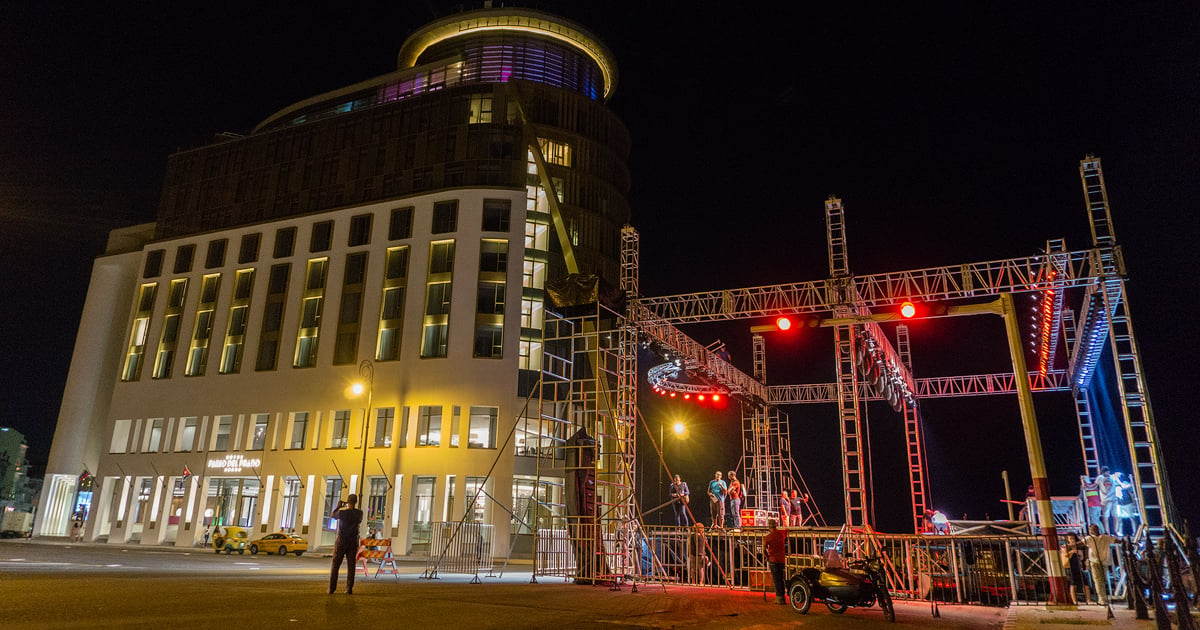The Cuban government has decided to strengthen measures in the tourism sector to prevent a collapse of services in the event of potential failures in the national electrical system. This comes after a complete blackout that occurred between October 18 and 22, which also disrupted the potable water supply. According to the Russian news agency TASS, Giana Galindo Henríquez, the commercial director of Cuba's Ministry of Tourism (MINTUR), announced that for the winter season of 2024-2025, hotels will be equipped with backup generators to ensure the stability of the tourism sector even during energy emergencies.
During the recent crisis, hotels on the island remained operational thanks to the use of generators and the relocation of tourists to facilities with full services, Galindo noted. She emphasized that the crisis had a "minimal impact" on tourism and that there were no cancellations of tours, particularly from Russian visitors, who rank as the third-largest source of tourists to Cuba. This statement was corroborated by Konstantin Dudkin, the representative in Varadero for Pegas Touristik, the leading Russian tour operator in the country, who praised the Cuban government's and MINTUR's efforts to ensure necessary services, including water storage and diesel supply for generators.
Cuban Population Struggles Amidst Energy Crisis
In stark contrast to the measures for tourists, everyday Cubans faced severe hardships during the prolonged blackout, experiencing food spoilage and limitations in essential services. The lack of electricity and water forced citizens to resort to rudimentary alternatives, such as cooking with wood, and several cities reported nighttime protests in response to the daily disruptions caused by the blackouts.
For the upcoming peak tourist season, the Cuban Ministry of Tourism assures that precautions have been taken to guarantee the continuity of tourism services. However, access to these generators and services seems largely reserved for the tourism sector, leaving the general population exposed to a deficient energy infrastructure.
Energy System Collapse and Government Prioritization
The recent energy crisis in Cuba has highlighted the vulnerability of the national electrical system (SEN), impacting both the local population and the tourism sector, particularly during recent total blackout events. While the Ministry of Tourism is taking steps to keep the sector operational, such as acquiring backup generators, the situation reveals a complex scenario that transcends simple emergency solutions.
On October 18, the blackout plunged not just Cuban cities into darkness but also major tourist centers, such as hotels in Varadero, where even backup generators failed in some instances, leaving tourists and workers without power. The situation created uncertainty and dissatisfaction, especially among foreign visitors who traveled to the island seeking a complete vacation experience.
Long-standing Policy Decisions and Their Impact
Cuba's energy crisis has deep roots tied to long-term policy decisions that have negatively affected the country's energy infrastructure. Cuban economists have pointed out that the choice to rely on fossil fuels amid financial constraints and limited access to modern technology has rendered the system both vulnerable and outdated.
In June 2022, Cuban economist Pedro Monreal argued that Cuba's energy crisis was a political decision, prioritizing available resources for real estate development in tourism over basic services. According to the esteemed expert, the decision to invest in one sector over another is made by the country's leaders.
"Resource scarcity affects investment, but a sustained shift in the relative weight of sectors indicates a political decision: prioritizing available resources in favor of real estate activity (which includes tourism) at the expense of basic services (electricity, gas, and water)," Monreal stated.
The increasing and relentless investments in the tourism sector, controlled by the Business Administration Group S.A. (GAESA) under the regime's leadership, have become a priority, ultimately affecting other public services like energy, health care, transportation, and education.
Tourism Takes Precedence While Citizens Endure Hardships
The prioritization of investments in the tourism sector at the expense of others also impacts the development of tourism on the island, something the Cuban government seems either not to understand or care about. The energy emergency has been particularly challenging for tourists, as seen in a recent case involving a Canadian visitor who experienced a blackout in the midst of her vacation.
The tourist described how the collapse of the SEN affected her stay, leading even to the cancellation of basic services and creating a tense atmosphere in hotels. This situation has started to tarnish the country's image as a safe and reliable tourist destination.
Despite these issues, the Cuban government continues to promote the country as an attractive tourist destination, highlighting reasons such as Cuba's natural beauty, vibrant culture, and rich history. For many, these factors remain compelling enough to visit the island, although current conditions cast doubt on the infrastructure's ability to meet travelers' expectations.
The reality shows that while the government focuses on preserving the tourism sector, a large portion of the Cuban population continues to suffer from the effects of an infrastructure that fails to provide basic services reliably and consistently.
